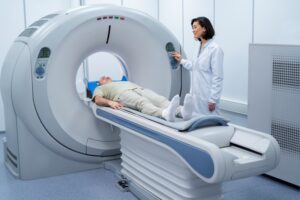
Health technology has become a driving force in reshaping the landscape of healthcare, offering innovative solutions to improve patient outcomes, enhance preventive care, and streamline healthcare delivery. Wearable health devices, health apps, remote patient monitoring, and ongoing health tech innovations are at the forefront of this revolution. In this exploration, we delve into the significance of each component, examining how they contribute to the broader framework of health technology and the transformative impact they have on the healthcare ecosystem.
Wearable Health Devices: Pioneering Personalized Healthcare
Wearable health devices, such as fitness trackers, smartwatches, and health monitoring wearables, have gained widespread popularity for their ability to empower individuals to take an active role in managing their health. These devices provide real-time data on various physiological parameters, including heart rate, physical activity, sleep patterns, and more.
One of the key advantages of wearable health devices is their potential to promote preventive healthcare. By continuously monitoring vital signs and health metrics, individuals can gain insights into their overall well-being and identify potential health risks early on. For example, a sudden deviation in heart rate patterns or sleep disturbances may serve as early indicators of underlying health issues, prompting users to seek professional medical advice.
These devices also play a crucial role in promoting an active and healthy lifestyle. They often include features such as step tracking, calorie monitoring, and exercise prompts, encouraging users to engage in regular physical activity. Some wearables even provide personalized recommendations based on individual health data, fostering a more tailored approach to fitness and well-being.
Health Apps: Transforming Healthcare at Your Fingertips
Health apps have become integral to modern healthcare, offering a wide range of services that extend beyond simple fitness tracking. From medication management to mental health support, health apps leverage the power of mobile technology to provide accessible and personalized healthcare solutions.
Medication adherence is a critical aspect of managing chronic conditions, and health apps play a pivotal role in promoting adherence through features such as medication reminders, dosage tracking, and prescription management. Patients can receive notifications to take their medications on time, and healthcare providers can monitor adherence remotely, intervening when necessary.
Mental health apps have emerged as a valuable resource for individuals seeking support and coping mechanisms for stress, anxiety, and depression. These apps often include guided meditation, mood tracking, and cognitive-behavioral therapy exercises, providing users with tools to manage their mental well-being in the comfort of their own space.
Moreover, health apps contribute to the democratization of healthcare information. Users can access reliable health content, receive personalized health insights, and participate in virtual communities for support and information exchange. This accessibility empowers individuals to become more informed and engaged in their health decisions.
Remote Patient Monitoring: Revolutionizing Chronic Care
Remote patient monitoring (RPM) is a transformative aspect of health technology, particularly in the management of chronic conditions. RPM involves the use of technology to collect health data from patients in real-time, allowing healthcare providers to monitor and manage their conditions remotely.
For individuals with chronic diseases such as diabetes, heart failure, or hypertension, RPM offers a proactive approach to care. Wearable devices, connected to mobile applications or cloud-based platforms, enable continuous monitoring of vital signs and health metrics. This data is then transmitted to healthcare providers, who can assess the patient’s status and intervene if necessary.
The benefits of RPM extend beyond improved disease management. By reducing the need for frequent in-person visits, RPM enhances the efficiency of healthcare delivery, reduces healthcare costs, and minimizes the burden on patients, especially those with mobility challenges or living in remote areas. Timely intervention based on real-time data also contributes to the prevention of complications and hospital readmissions.
Health Tech Innovations: Shaping the Future of Healthcare
The field of health technology is dynamic, with ongoing innovations continually shaping the future of healthcare. From artificial intelligence (AI) applications to telemedicine advancements, these innovations hold the potential to further improve patient care, enhance diagnostic accuracy, and streamline healthcare processes.
AI and machine learning are increasingly being integrated into health technology to analyze vast amounts of health data and identify patterns that may go unnoticed by human observers. This has applications in diagnostics, personalized treatment plans, and predictive analytics. AI-driven algorithms can assist healthcare professionals in making more informed decisions, ultimately leading to better patient outcomes.
Telemedicine, a subset of health technology, has gained significant traction, especially in the context of remote consultations. The ability to connect patients with healthcare providers through virtual visits has proven invaluable, offering timely and accessible care. Telemedicine not only addresses issues of geographic accessibility but also provides a solution for situations where in-person visits may be challenging, such as during a global pandemic.
Furthermore, the integration of robotics into healthcare is another noteworthy innovation. Surgical robots, for example, enable precision and minimally invasive procedures, reducing recovery times and improving overall patient satisfaction. Robots can also be employed in tasks such as medication dispensing and patient care in healthcare facilities.
Challenges and Considerations
While health technology brings about transformative benefits, it is not without challenges. Data security and privacy concerns are paramount, especially as health-related information is transmitted and stored digitally. Striking the right balance between technological innovation and safeguarding patient data is essential to maintain trust in health technology solutions.
Interoperability is another challenge, as various health tech devices and platforms may not always seamlessly integrate with existing healthcare systems. Standardization efforts are underway to ensure that different technologies can work together cohesively, facilitating the exchange of information and enhancing the continuity of care.
Additionally, the digital divide poses a potential barrier to the widespread adoption of health technology. Not all individuals have equal access to smartphones, wearable devices, or a reliable internet connection. Addressing these disparities requires a concerted effort to ensure that the benefits of health technology reach all segments of the population.
Conclusion
Health technology has emerged as a driving force in transforming healthcare, offering innovative solutions to empower individuals, improve patient outcomes, and enhance the efficiency of healthcare delivery. Wearable health devices, health apps, remote patient monitoring, and ongoing health tech innovations collectively contribute to a more personalized, accessible, and proactive approach to healthcare.
As technology continues to evolve, the future holds promise for even more groundbreaking innovations in health technology. From AI-driven diagnostics to the continued expansion of telemedicine, these advancements have the potential to revolutionize healthcare, making it more patient-centric, efficient, and responsive to the evolving needs of individuals and communities. The ongoing collaboration between healthcare professionals, technology developers, and policymakers will play a crucial role in shaping this future and ensuring that health technology continues to be a driving force for positive change in the realm of healthcare.






